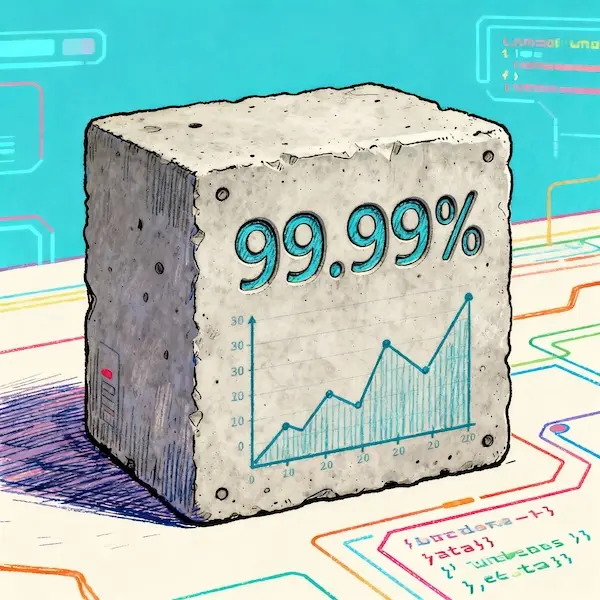
Table of contents
The backbone of digital trust: why SLA matters
In the world of Software as a Service (SaaS), trust is the most valuable currency. When a company depends on a cloud-hosted platform, it needs clear guarantees that the service will work whenever it’s needed.
This commitment is articulated in a key document: the Service Level Agreement (SLA), where the provider defines its commitment to availability, performance, and support. A solid SLA is not just a technical commitment: it’s a statement of business seriousness.
eEvidence: a “four nines” commitment
In the realm of electronic certification —where every minute counts and every piece of evidence must be available— service continuity is critical. Therefore, eEvidence commits to a 99.99% availability level, known as four nines.
This commitment is based on strict definitions:
- Service Downtime: service unavailable to accept connections for more than 4 minutes in a month.
- Availability: the client’s ability to send messages to the service at any time, and for these to be delivered to recipients in a reasonable time.
Such a high level of availability is not accidental: it reflects the service’s redundant architecture and its continuity-oriented design, as well as trust in our strategic providers —even those third-party services guaranteed at 99.95% or even 99.9%.
Transparency with financial backing
A commitment only has value if it also contemplates what happens when it’s not met. In case of SLA non-compliance:
- eEvidence credits the client 10% of the service cost corresponding to the affected month.
- Credits will be deducted from future invoices.
How availability is calculated
The formula used considers:
- mTm: total minutes of the month
- mDt: minutes of service downtime
- mSLA: allowed downtime (0.01%)
Total transparency and an objective model to measure service quality.
Speed and efficiency: more than just being available
In addition to pure availability, eEvidence’s SLA also defines strict performance objectives:
- 95% of events must complete in less than 30 seconds, from message reception to evidence certificate issuance.
It’s important to note that the SLA excludes elements outside the provider’s control:
- Destination SMTP server availability.
- Primary network operator failures.
That is: what depends on the service is guaranteed, without impossible promises about external systems.
Dedicated support and incident management
A complete SLA also includes the support commitment:
Standard support:
- Monday to Thursday: 09:00–18:00 UTC+1
- Friday: 09:00–15:00 UTC+1
- Minimum response time: 1 hour
Critical support (24/7):
- Minimum response time: 6 hours
Regarding incident prioritization, it’s important to be as clear as possible. In our case:
- Critical: the email gateway does not respond.
- Important: problems with delivery, certificate issuance, or API queries.
- Minor: non-critical delays in response times.
Updates are also covered within the SLA commitment. Any update that may impact how the client uses the service must be notified 30 days in advance. Only urgent or trivial changes are applied without prior notice.
Conclusion
SLA is much more than a contractual annex: it’s the foundation of the relationship between a SaaS provider and its clients.
eEvidence’s commitment —99.99% availability, clear financial compensation, 24/7 support for critical cases, and auditable metrics— reflects a fundamental premise: electronic certification only has value if the service works whenever it’s needed.
With such an SLA, clients can trust that their digital evidence will arrive, be certified, and be available with the reliability required by their legal and operational obligations.
Ready to get started?
Contact us to share your business project or register now to start trying our services today
